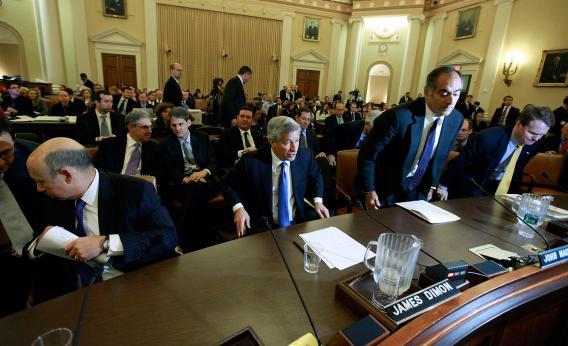Kevin Roose has a very important corrective to the badly overstated myth that Wall Street somehow hasn’t changed since the financial crisis. It has changed, a lot.
But this fact doesn’t give me a ton of confidence because Washington hasn’t changed.
After all, right now just isn’t a great time to assess the state of sound risk management in America’s financial system. The scars from the crisis are still very much with us. Crazy political escapades like debt ceiling fights and Cyprus suddenly imposing capital controls keep happening. Obscure regulators like FERC are popping up to take shots at banks. So naturally things are a bit more on the conservative side.
The question isn’t really what’s happening in 2013. It’s what’s going to happen in 2016 or 2019 or some other time when things look to have “returned to normal” and the basic psychology of complacency sets in. And here I worry. The regulatory system continues to be very much built on a system of discretion and fragmented lines of authority, and I don’t think much has changed in terms of the political class’s overall theory of finance and society. The consensus is still that easy access to consumer debt is more or less an unmitigated good, that leveraged investments in owner-occupied housing should be the bedrock of middle class savings (or “savings”), and that national champion financial services firms should be an important pillar of American industrial policy. Fortunately, Sherrod Brown and Elizabeth Warren and others have at least challenged that last point.
But even the most aggressive reformers have really only nibbled at the edges of the cult of consumer debt. Yet ultimately you can’t restrain the bankers without constraining credit. A political culture that’s fundamentally unwilling to say that it’s sometimes a good thing to reduce ability to borrow is going to find itself again and again engaging in pro-cyclical regulatory efforts. It’s nice that we’ve closed the barn door now that the horses are out, but as the economy improves we’re going to see steady pressure to ease off on the regulation and I think the hegemonic influence of the financial sector is still very much in place.
